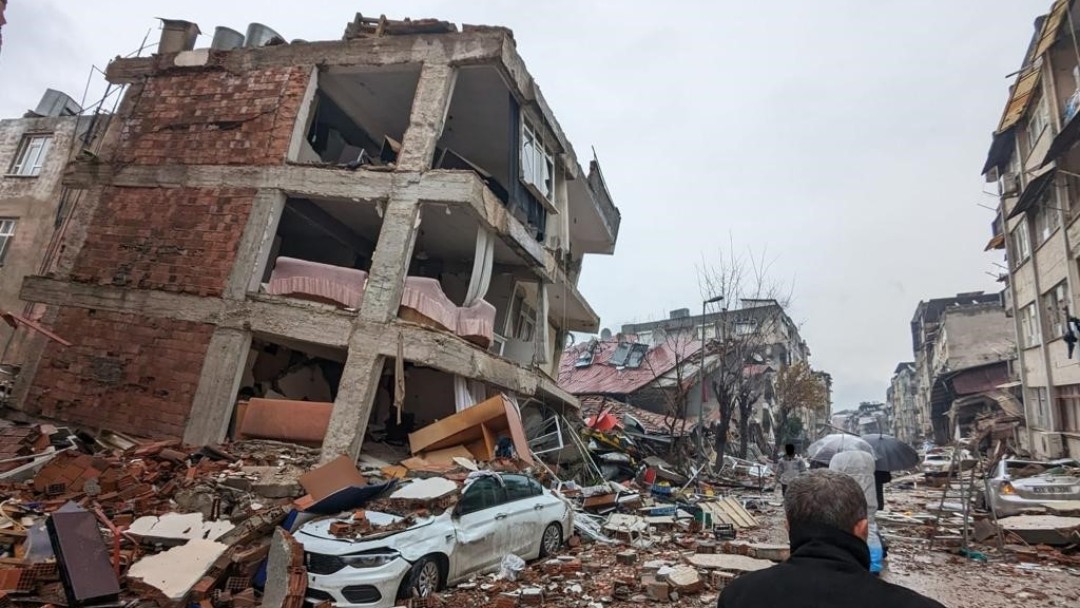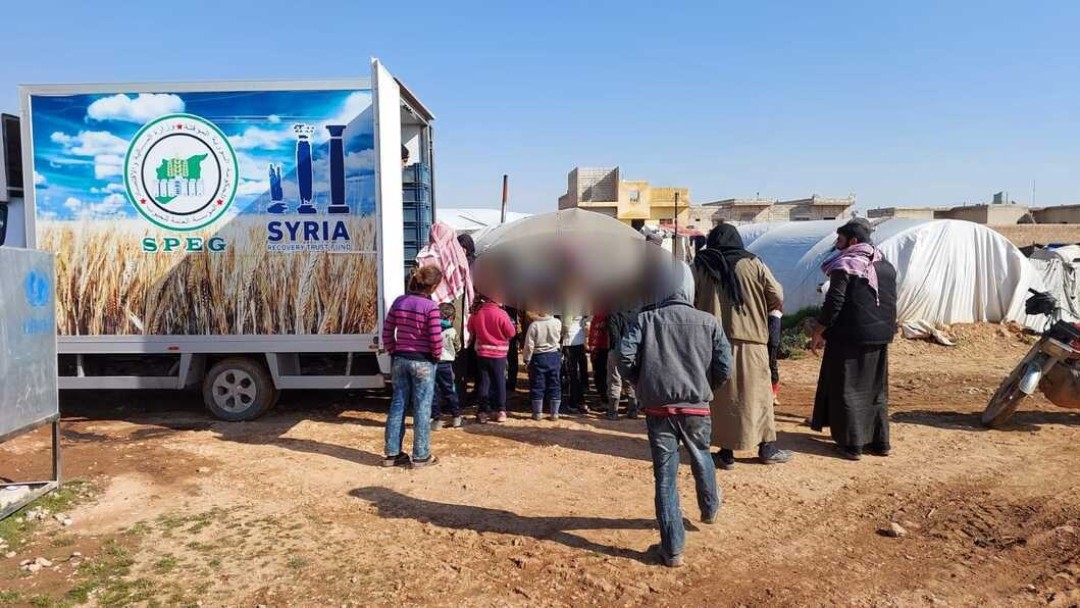News from 2023-02-15 / KfW Development Bank
Aid for earthquake victims in Türkiye and Syria

The images and reports from the earthquake zones in Türkiye and Syria are harrowing. The number of victims is increasing and thousands are still missing. KfW Development Bank has been active in the border area since the beginning of the Syria crisis: in Türkiye in cooperation with UN organisations and non-governmental organisations for Syrian refugees, throughout Syria also with UN organisations, and since 2013 in the non-regime areas with the Syria Recovery Trust Fund (SRTF).
Earthquake-resistant schools in Türkiye
In Türkiye, KfW Development Bank is involved in refugee projects in the earthquake region on behalf of the BMZ and the EU with EUR 700 million. KfW Development Bank promotes the integration and social cohesion of refugees. With 4.5 million refugees, Türkiye is the largest host country worldwide. Since 2016, KfW Development Bank has been cooperating with UN organisations and NGOs in the earthquake region in Türkiye and is committed to Syrian refugees: medical care, employment programmes and the construction of schools are part of this. According to information available so far, the schools financed by the EU and built earthquake-proof by KfW with its Turkish partners have survived the quake well and are being used as emergency aid centres in the current situation.
With UN organisations and NGOs, urgently needed support is now being organised quickly - beds, clothing, heating, soup kitchens. BMZ has approved the reallocation of EUR 7 million from existing projects to finance this. This sum will now directly and unbureaucratically benefit the people in the earthquake areas in Türkiye. For the reconstruction phase that will soon begin, the collected know-how in the construction of earthquake-resistant buildings will hopefully make another important contribution.
A donor conference on the earthquake will be organised by the EU in Brussels in early March. Emergency measures in the field of social development, employment promotion and health care are currently being prepared.

Help for Syria
In Syria, the conditions for rapidly effective aid are difficult - after years of civil war and under a regime that is largely isolated internationally, and so far only one open border crossing for humanitarian aid to Türkiye.
In the affected north of Syria, the SRTF, which is managed by KfW and funded by the Federal Foreign Office and other donor nations, can draw on the structures already in place. Partners are NGOs and local administrations in the non-regime areas of Syria. The SRTF finances projects to provide basic infrastructure: water and sanitation, electricity, medical care, food security and agriculture.
Only 24 hours after the earthquake, the SRTF, in cooperation with the Syrian Public Establishment for Grains (SPEG), started daily distribution of bread packages in the areas most affected by the earthquake. Since then, SRTF partners have been distributing 15,000 bread packages to families every day. Stockpiles of medicines and medical supplies from SRTF health projects - almost 90,000 items in total - were distributed to three health facilities.
SRTF emergency plan
In immediate response to the earthquake, the SRTF approved the first part of an Emergency Relief Plan (ERP) of EUR 1.3 million on 10 February to mobilise resources and provide rapid assistance to thousands of Syrians in need following the deadly earthquake that struck the region. Tents, blankets, surgical kits and other medical supplies are being procured and distributed - much-needed goods for people enduring catastrophic conditions in the region.
KfW is also in close contact with BMZ and the United Nations (UNICEF, UNDP, UN Habitat) on the situation in Syria in order to be able to provide effective support in the earthquake zone as part of ongoing projects, including in the areas of water supply and sanitation, child protection, psychosocial support and rubble clearance.

Share page
To share the content of this page with your network, click on one of the icons below.
Note on data protection: When you share content, your personal data is transferred to the selected network.
Data protection
Alternatively, you can also copy the short link: https://www.kfw-entwicklungsbank.de/s/enzBWrMC.C3nA
Copy link Link copied